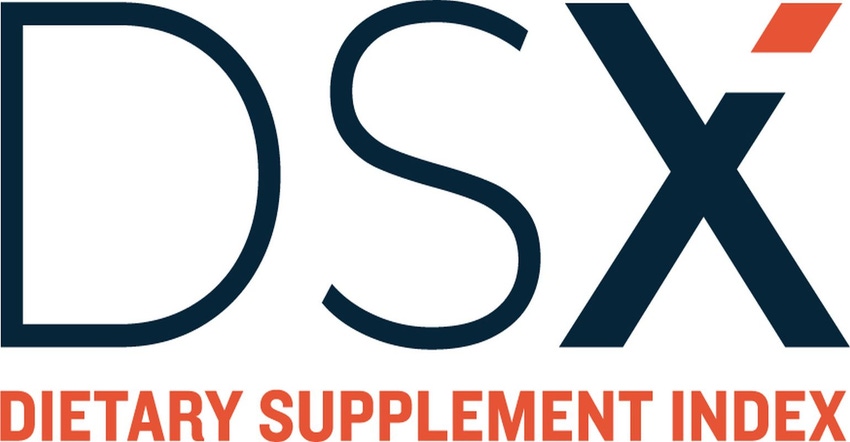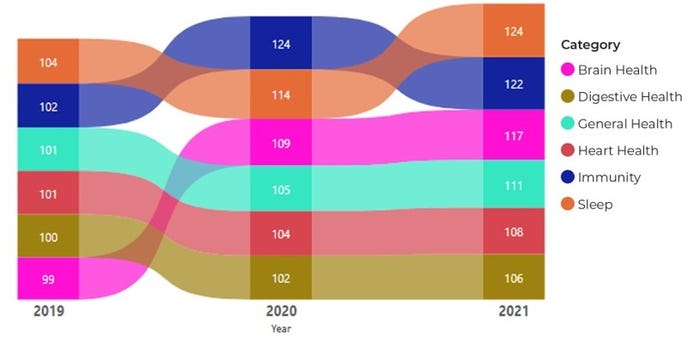Good decisions begin with good data, according to Duffy MacKay of the Consumer Healthcare Products Association (CHPA). In this article, MacKay—a naturopathic doctor and veteran in the dietary supplement industry—writes about CHPA’s new analytical tool to bring more data into decision-making for dietary supplement policy.

This is part of Natural Products Insider’s periodic updates from trade associations and other major stakeholders. These are meant to keep industry readers updated on these organizations’ activities and priorities, as well as to issue calls for action. These are op-ed commentaries and represent the views from the authors and/or the organizations they represent, not the views of Natural Products Insider or its editorial staff.
This September, for the first time in more than 50 years, the White House will host its Conference on Hunger, Nutrition and Health to drive progress and facilitate change that will end hunger, improve nutrition and physical activity, and reduce diet-related disease. Dietary supplements have an opportunity for recognition in this forum, and more broadly, as a credible part of U.S. health care policy, but the question remains: How do we influence U.S. health care policymakers? The answer: data.
The inaugural White House Conference on Food, Nutrition and Health, held in 1969, was a pivotal event that influenced the U.S. food policy agenda for the next 50 years. Since then, scientific evidence has demonstrated adequate, long-term nutrition supports optimal health and prevents chronic disease. We now know better nutrition is related to safer pregnancy and childbirth, as well as improved infant health. We also know getting all the vitamins, minerals, fiber, bioflavonoids and beneficial fats from your diet is good for the immune system and lowers the risk of chronic diseases like diabetes, heart disease and osteoporosis.
During the past 40 years, federal programs and policies like the Dietary Guidelines for Americans, the Supplemental Nutrition Assistance Program (SNAP) and the Special Supplemental Nutrition Program for Women, Infants, and Children (WIC) have been implemented to enrich and improve the American diet. However, despite these well-meaning initiatives, data show Americans continue to lack key nutrients like fiber, vitamin D, vitamin C, calcium and magnesium.
In 1980, the Dietary Guidelines for Americans prescribed fresh fruit and vegetable consumption for better health outcomes. Yet in 2021, more than 90% of Americans did not eat the recommended daily two or more fruits, and three or more servings of vegetables. A 2022 national poll on children’s health found three in five parents report difficulty in getting their children to eat well-balanced diets. Parents report fussy eating (35%), not eating enough fruits and vegetables (31%), not getting enough of certain vitamins and minerals (13%), and not getting enough fiber (9%). While it is important for U.S. food policy to prioritize access to healthy, fresh food for all Americans, there are compelling reasons to integrate evidence-based dietary supplements as part of a pragmatic solution to improving nutrition.
Dietary supplement use has become mainstream for American households but continues to be underrecognized by mainstream health care systems. The Centers for Disease Control & Prevention (CDC) reports about 60% of Americans have used dietary supplements in the past 30 days. During the Covid-19 pandemic, consumers prioritized prevention and proper nutrition, which accelerated consumer demand for supplements. For example, scientific evidence showing adequate levels of vitamin D could reduce the risk of serious respiratory problems or even death from Covid-19 infections motivated consumers to consider nutrition as prevention. Even still, many health care professionals and insurance payers are reluctant to jump on board.
There is a missed opportunity for health care providers and third-party payers to include dietary supplements into overall health, wellness and benefit programs where appropriate. As supplement use surges, providers can play a role by educating and guiding their patients toward beneficial, safe products and steer them away from products that might be inappropriate. Similarly, insurance programs can include dietary supplements as a benefit for targeted groups when evidence supports their use, and especially when plans are seeking to expand benefits to improve member recruitment, satisfaction and retention.
In seeking to realize the opportunity for supplements to play a larger role in health care systems and fill the void on supplement data integrated with other health data, the Consumer Healthcare Products Association (CHPA) has created a tool that will capture dietary supplement category trends with health care trends. This data will inform payers and providers about dietary supplement usage and help drive their acceptance and understanding of the industry.
The CHPA Dietary Supplement Index (DSX) is a statistical tool that overlays data on dietary supplement use with U.S. health care data to enhance our understanding of the expanding role of supplements and health care systems. The DSX tracks changes in sales for six categories and thirteen subcategories of dietary supplements, which is calculated into a single number. The “index” or the DSX for a given category, or subcategory of supplements, is tracked longitudinally and can be overlayed with other U.S. health care databases to identify factors that contribute to changes over time.

The DSX will be used by CHPA to demonstrate ways consumers are using dietary supplements as part of self-care to fill nutrient gaps, stay healthy and support overall wellness by identifying correlations between supplement use and other factors that influence consumer health care like insurance coverage, access to retail, doctors or pharmacies, and health data like disease incidence and lifestyle risk factors. The DSX can analyze data by sales category and subcategory and can be further segmented demographically and geographically to allow for dynamic correlations.
Health economist, Paul Keckley, is analyzing Dietary Supplement Index data from 2019-2020 that will be the basis for the inaugural CHPA DSX report. This critical data will be used to influence health care policymakers over the long term. CHPA believes this report and future reports will become powerful educational tools to increase awareness about consumer use of dietary supplements as part of personal health care. A data-driven approach is key to advancing the understanding and acceptance of supplements among health care providers and insurers, as well as expanding opportunities for engagement in nutrition policy conversations like the discussions that will happen at the White House conference later this fall.
Reference: C.S. Mott Children’s Hospital National Poll on Children’s Health, April 2022.
Naturopathic doctor Duffy MacKay is the senior vice president of dietary supplements at the Consumer Healthcare Products Association (CHPA), where he leads the association’s dietary supplement scientific, policy and legislative initiatives. His career in supplements spans over 25 years and includes serving as a senior executive and scientist at leading dietary supplement companies, including CV Sciences, Nordic Naturals and Thorne Research.
About the Author(s)
You May Also Like






.png?width=800&auto=webp&quality=80&disable=upscale)